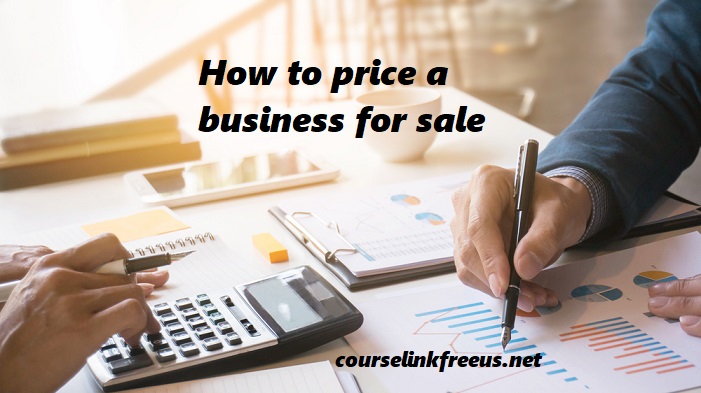How to Price a Business for Sale: The Ultimate Guide to Getting Top Dollar

When I decided to sell my first business, I had no idea where to start. Pricing a business isn’t just about picking a number that feels right; it’s a strategic process that can make or break your sale.
In this post, I’ll walk you through everything I’ve learned about pricing a business for sale, so you can confidently set a price that attracts buyers and ensures you get the best deal.
1. Understand the Value of Your Business

The first step in pricing your business is understanding what it’s truly worth. This isn’t just about how much money it’s making but also its overall value in the market. Consider:
- Tangible Assets: Equipment, inventory, real estate.
- Intangible Assets: Brand reputation, customer base, intellectual property.
- Earnings and Profitability: Buyers are typically drawn to businesses with strong financial performance.
Pro Tip: A business with recurring revenue streams and stable growth often commands a higher price.
2. Choose a Valuation Method
There are several methods to determine the price of a business. Here are the most common ones:
a. Market-Based Valuation
This involves comparing your business to similar ones recently sold in your industry. Look at the sales price of competitors and adjust for size, location, and revenue differences.
b. Asset-Based Valuation
Calculate the total value of your business’s assets and subtract liabilities. This method works best for asset-heavy businesses like manufacturing companies.
c. Earnings Multiple Approach
This method uses your business’s annual profits (EBITDA or SDE) and applies an industry-specific multiplier to determine value. For example:
- Small businesses: 2–4x annual profits.
- Established businesses with growth potential: 4–8x.
3. Factor in Market Conditions
The state of the market can significantly impact your business’s price. Are buyers in your industry active? Are interest rates low, making financing easier? Timing matters, so analyze the economic and industry trends before setting a price.
4. Adjust for Seller Discretionary Earnings (SDE)
Small businesses often include personal expenses in their financials, such as travel, car payments, or health insurance. When calculating the value, adjust for these to present the true earning potential of your business.
5. Work with a Professional Business Valuator
While you can do a lot on your own, hiring a business valuation expert can help you avoid mistakes. They’ll:
- Provide an unbiased valuation.
- Help identify overlooked assets or risks.
- Add credibility to your asking price when pitching to buyers.
6. Set the Right Asking Price
Here’s the trick: You want to set a price that reflects your business’s value but still leaves room for negotiation. Pricing too high can scare buyers away, while pricing too low may lead to regret.
Pro Tip: Add 10–15% above your ideal price to give buyers the satisfaction of negotiating a deal.
7. Prepare Financial and Operational Documents
Transparency is key when selling a business. Ensure you have:
- Up-to-date financial statements.
- A clear outline of assets and liabilities.
- Detailed operational procedures.
Buyers want assurance that they’re getting what they pay for, and well-organized documentation adds confidence.
8. Highlight Growth Opportunities
Buyers are not just paying for what your business is today; they’re investing in its future potential. Clearly outline:
- Expansion opportunities.
- Untapped customer segments.
- Ways to increase profitability.
9. Consider Seller Financing
Offering seller financing (where you finance part of the sale) can make your business more attractive to buyers. It shows you have confidence in its future performance and can help you get closer to your asking price.
10. Be Ready to Negotiate
Negotiation is inevitable, so be prepared to defend your asking price. Understand your bottom line and be willing to walk away if the offer doesn’t meet your expectations.
Say Goodbye to Drain Flies Forever: My Proven Method That Actually Works!
Final Thoughts
Pricing a business for sale is both an art and a science. By understanding its value, choosing the right valuation method, and preparing thoroughly, you can confidently price your business to attract buyers while ensuring you get the best deal possible.
If you’re planning to sell your business, take the time to analyze every aspect of its value. Trust me, the effort will pay off when you close the deal with the perfect buyer!





